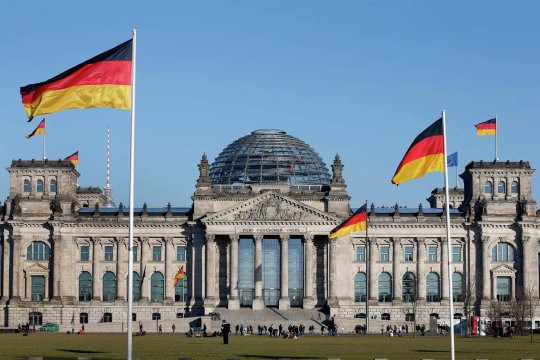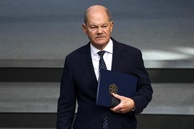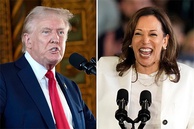For the first time in the history of the German government, after numerous promises and announcements, the Foreign Ministry has finally drawn up and presented to the broad public its Federal China Strategy. The document, the first in the half-century history of diplomatic relations between the two countries, defies any comparison with anything that German diplomacy has ever come up with. In Berlin, it is viewed as an important addition to the German National Security Strategy, which Chancellor Scholz personally presented with all due pomp and circumstance at a special news conference in June, which we previously wrote about.
However, mindful of China’s importance for the German foreign policy and realizing that the People’s Republic does not fit into the Strategy’s framework, the Scholz Cabinet followed it up with a separate 61-page brochure, which details all of Berlin’s main approaches to Beijing - from the economy and security to climate and human rights.
In a nutshell, the Strategy boils down to two main premises - firstly, Berlin is interested in and will strive for a business partnership with the "world’s second economy," and secondly, the Germans should be wary of China's economic and political expansion and prevent any dependence on the eastern giant, its products and its market. One should “live in peace and freedom” with all countries, but “not be naive,” as German Foreign Minister Annalena Baerbock bluntly stated when unveiling the new Strategy on July 13.
“We want to reduce dependency in critical areas to mitigate risks,” she underscored.
At the same time, the document’s openly confrontational spirit reflects a tougher stance towards China, compared to how it was under Chancellor Angela Merkel. It is the second component of the Strategy, actually the strategy of containing China that became its core, spelled out in the most detail, and this fact was certainly not lost on political analysts and the media. First, we are talking about "freeing" the German economy from dependence on China in areas that are already very strongly affected by trade with the Celestial Empire. Indeed, in 2022, China, for the seventh consecutive time, topped the list of Germany’s main trading partners with bilateral trade amounting to about 300 billion euros. Germany accounts for nearly half of all European investment in China, and almost 50 percent of German manufacturing plants are in some way or another connected with China in terms of their supply chains. And now, amid a global instability and economic problems at home, Berlin is going to free itself from “dependence” on China?!
In recent years, the Germans have faced some unpleasant facts. In particular, during the COVID-19 pandemic, Germany became seriously dependent on the import of many Chinese medicines, a number of medical equipment and electronics, as well as components for the automotive industry. Berlin was also worried by its dependence on China in the supply of rare earth metals and some raw materials, including processed minerals used in "green" technologies. In the latter case, the dependence is generally regarded as critical.
According to the Strategy, from now on, Germany will be trying to limit China’s influence on “critical sectors” not only of large industries, but also of medium and small businesses. The new policy includes export controls and verification of investments by German companies doing business in China in order to protect the flow of sensitive technology and know-how. The government said it was working to create incentives for German companies to diversify their business outside of China.
Neither did they forget to provide in the new Strategy justification for this change of wind, arguing that it was due to Beijing's current activities, allegedly aimed at undermining the established world order. They say that the further China "moves away from the norms and rules of the international order, the stronger the problems of critical dependence of individual industries or firms on the Chinese market may become." In such a case, German business people are advised to avoid "super high risks" when doing business with the Chinese and to "create incentives to quickly dismantle" their business.
“We will confidentially exchange analytical materials with enterprises,” the document says, “especially those with little protection in relations with China, about their risks in order to recognize the growing threats to them in a timely manner.”
However, despite its socially disturbing passages, the document adds that Germany has no plans whatsoever to scale down its business ties with Beijing. Notably, in remarks made following the results of the government discussion of the Strategy, Chancellor Scholz spoke about two Chinas - the former and the present. He argued that the new document is a reaction to “China, which has changed and is acting more aggressively. It is clear to us that China is and will remain a partner, competitor and systemic rival.” A formula like this may tempt one to place accents wherever he chooses. For example, the Greens' Foreign Minister Baerbock chose to point out that "the aspect of systemic rivalry is becoming more prominent." We will wait for further interpretations of this and for real actions.
In general, the Strategy is the result of lengthy debates and a long search for a compromise between members of the three-party ruling coalition. Hence its many inconsistencies, ranging from the recognition of the importance of the German-Chinese partnership to attempts to make bilateral supply chains dependent on respect for human rights. Commenting on the release of the new Strategy, the German media also draws attention to the fact that the Scholz Cabinet places different political accents when dealing with China. For example, the Chancellor himself, a Social Democrat, is against any toughening of Berlin’s stance with Beijing, just like his coalition partners – the Greens and the Free Democrats. As an illustration, the influential "Die Welt" cites as an example the purchase by the Chinese state company "Cosco" of a big chunk of the shares (24.9%) of a container terminal in the port of Hamburg. This costly deal, involving a strategic sector of German logistics, was inked despite fierce protests by the Greens, led by Vice-Chancellor and Economics Minister Robert Habeck. Moreover, its final closure came right before the publication of the new Strategy. Well, this deal would hardly have happened without a blessing from the Chancellor, who, by the way, was a longtime mayor of Hamburg. On the whole, the Social Democrats have always advocated pragmatism in relations with Beijing, avoiding unnecessary complications in bilateral economic ties. Too much is at stake for Germany.
And what do the German entrepreneurs themselves think about the newly-unveiled Strategy? Naturally enough, their opinions were mixed. The local business community is generally against political considerations interfering with their work, and the strategy of "integrated security" vis-à-vis China, pitched by Baerbock is just such a factor, which actually hamstrings their market relationships. Many provisions of the document put pressure on business, which is still willing to maintain and expand its cooperation with Chinese partners. Still, the German business leaders predictably saluted the government’s document, with the President of the German Chamber of Commerce and Industry, Peter Adrian, saying that it contains the “right approach” to relations with Beijing. The President of the German Industrial Union, Siegfried Russwurm, concurred, albeit with a reservation against too much state control over and interference in a specific investment structure.
The part of the Strategy dealing with the foreign policy aspects of relations with China looks even more confrontational. Here, the authors did not spare any criticism of Beijing in the traditional mentoring manner of the guardians of "true democratic values," citing what they describe as serious human rights violations still happening in China, and alleging that Beijing’s policy in the vast Indo-Pacific region is undermining international law. At the same time, the authors certainly keep mum about the United States’ aggressive actions in this region that are provoking China. Berlin "watches with dismay as China seeks to influence the international order in accordance with the interests of its one-party system, and in doing so, challenges the foundations of a rules-based international order, including the legal status of the individual." According to the Strategy, this too has an impact on European and global security.
As expected, the Strategy also mentions Russia. Just who China is friends with is a very painful issue for Berlin. In the Strategy, the expansion of Russian-Chinese cooperation is seen as a factor that directly affects the security policy of the Federal Republic. In particular, it refers to the fact that in keeping with the joint statement of February 4, 2022, Beijing and Moscow agreed to significantly ramp up their cooperation across the board. The document states that in their joint statement, Russia and China reject the further expansion of NATO and claim spheres of influence in neighboring regions. The Strategy also emphasizes that in light of the Ukrainian conflict, close Russian-Chinese cooperation is at odds with the requirements of the UN Charter.
The Chinese certainly knew that the Germans were preparing their new Strategy, and kept sending diplomatic signals to Berlin about their readiness for constructive cooperation, noting that "considering China as a source of risks is a fatal delusion." Notably, even before the Strategy was unveiled in Berlin on June 20, Germany and China had their seventh high-level intergovernmental consultations, held in a face-to-face format for the first time since 2019, where Chinese Prime Minister Li Qiang once again called for greater confidence. During a meeting with members of the German leadership, he said: ”You can't just look down when it's raining. Knowing where the dirt is will not help us. So cheer up, we'll see a rainbow." His words were ignored by Berlin though. Moreover, demonstrating a tough approach, Foreign Minister Baerbock symbolically chose to present her report at the Mercator Institute for China Studies (MERICS), whose employees have been under Chinese sanctions since March 2021.
This time round, the openly confrontational tone of the Strategy provoked an immediate and sharp reaction from Beijing. The Chinese did not hide their irritation. The Chinese government, through its embassy in Berlin, objected to the content and interpretations of the document, insisting that China is a partner for Germany, not a rival. The embassy said in a statement that it "strongly opposes" efforts to "interfere in China's internal affairs, distort and vilify China, and even damage China's core interests." "Looking at China and formulating strategies towards China based on ideology will only exacerbate misunderstandings and misjudgments, and damage cooperation and mutual trust between the two sides," the embassy concluded. In turn, China’s Foreign Ministry spokesman Wang Wenbin called the document "counterproductive," saying that it "would only deepen the split in the world." He urged Berlin to look at China "comprehensively and objectively," and not take the path of protectionism.
In a word, the authors of the Strategy obviously had no intention to build bridges to improve the German-Chinese partnership. Instead, they chose the path of alienation. Berlin will hardly benefit from this though. The closer one looks at the new Strategy of the Scholz Cabinet towards the People’s Republic of China, the more obvious it becomes that it provides no positive impulses to strengthening mutual understanding between the two countries and improving the business climate for their economies. Rather, it will complicate them.
The views of the author are his own and may differ from the position of the Editorial Board.
read more in our Telegram-channel https://t.me/The_International_Affairs

 11:39 02.08.2023 •
11:39 02.08.2023 •



























